#going off the fact that dragon chan is based off Bruce Lee who also acted in movies. and SMM in universe is a hollywood star
Explore tagged Tumblr posts
Text


I like to think these two spend a lot of time together outside of the ring cuz they're both Hollywood actors (though SMM is infinitely more popular than Dragon Chan. DC is mostly known for stunt performances)
and then they kisssss
#going off the fact that dragon chan is based off Bruce Lee who also acted in movies. and SMM in universe is a hollywood star#spinkicks#that's such a cute ship name gold star to who came up with it#i started shipping them ironically just cuz they were my fav PO characters#but now. it's not a joke.#punch out#txt
22 notes
·
View notes
Text
How Batman: Soul of the Dragon Pays Homage to 70s Kung Fu and Bruce Lee
https://ift.tt/eA8V8J
Batman: Soul of the Dragon sets Gotham’s caped crusader in a vintage martial arts homage. Directed by Sam Liu, who also directed the animated movie version of one of the greatest Batman graphic novels ever published, Batman: The Killing Joke, this is the 42nd project in the ongoing DC Universe Movies series.
However, Soul of the Dragon is an original tale, not based on a precedent comic. Like the eye popping anime-style film Batman Ninja, this is a completely stand-alone story. Batman: Soul of the Dragon is yet another chapter in the many creation tales for Batman. It tells of his martial indoctrination and joining him on this adventure are three of the best martial artists within the DC multiverse: Lady Shiva (Kelly Hu), Ben Turner a.k.a. Bronze Tiger (Michael Jai White), and Richard Dragon (Mark Dacascos).
“It’s a 70s martial arts action-adventure drama with a great sense of humor,” says Dacascos. Like so many Hollywood martial arts stories, Batman: Soul of the Dragon is told in two time periods: the present-day problem and in flashbacks to the original martial arts lessons that offer solutions. It’s a storytelling motif that can be traced back to the pioneering David Carradine’s Kung Fu TV show and Bruce Lee’s iconic Enter the Dragon.
In many ways, Batman: Soul of the Dragon is a tribute to Enter the Dragon, when the Kung Fu and blaxploitation genres were at their height. Richard Dragon is an homage to Bruce Lee’s character ‘Lee’ in Enter the Dragon (just like in so many Jackie Chan films, the name of Lee’s character was the same as his real name). In some scenes, he dons a similar black catsuit as Lee wore when infiltrating Han’s subterranean lair but stops short from yelling ‘Wataaah!’ when fighting.
Enter the Dragon was a game changer for martial arts movies, but it was also in the wake of the popularity of spy films of those days, specifically James Bond. Enter the Dragon is also a spy film, and it came out at a pivotal time for the Bond franchise, the same year that Roger Moore took over 007 in Live and Let Die. The spy film genre was immensely popular during the Cold War of the ‘60s, but by the ‘70s, it was looking to reinvent itself to remain popular. Enter the Dragon had the potential to launch a spy franchise for Bruce Lee, but his untimely and shocking death cut that short. Tragically, he died just prior to the release of the film. In some ways, Richard Dragon makes us ponder what a sequel to Enter the Dragon might have been like.
With his groovy afro and jive talking banter, Ben Turner steals a page from the character of Williams (Jim Kelly) from Enter the Dragon too. Batman is faintly akin to Roper (John Saxon), a token white guy amidst a diverse cast. Even the funky soundtrack by Joachim Horsley echoes the music of Enter the Dragon’s composer Lalo Shiffrin.
“In the 70s I was very impressionable,” reflects Dacascos. “The music brings you right back to that time. I love it. I love Enter the Dragon.”
It’s ironic that Batman would honor Bruce Lee in this way. For many, the Batman TV show of the mid-60s was their first exposure to the Little Dragon. Lee’s earliest Hollywood role was Kato, the chauffeur of The Green Hornet, which became a spin-off series of Batman, running for a single season on NBC in 1966-67.
Who is Richard Dragon?
Batman: Soul of the Dragon is a complete reimagining of Richard Dragon. In the original comic storyline, Dragon was Richard Drakunovski, a Caucasian character. He first appeared in the novel, Dragon’s Fists: Kung-Fu Master Richard Dragon by Jim Dennis, which was published the year after Enter the Dragon premiered (Jim Dennis was a pseudonym, the combination of the two authors’ names Dennis O’Neil and Jim Berry). The character was later adapted to comics by DC.
In the original DC version, Dragon was a classmate of Ben Turner, both of whom trained under O-Sensei (played by the venerable James Hong in Batman: Soul of the Dragon). Lady Shiva was also part of this Kung Fu lineage. O-Sensei’s goddaughter Carolyn Woosan was Lady Shiva’s sister. After Woosan was killed, Lady Shiva was tricked into thinking Dragon was at fault and hunted him to take revenge. Eventually, the trick was foiled so Shiva and Dragon became allies, united against a common foe.
In the comics, the world of Batman doesn’t cross with Dragon’s until much later. Dragon goes on to become a trainer of many DC heroes, notably the first Batgirl, Barbara Gordon. In another story, he helps Batman rehabilitate after sustaining injuries from Bane.
In a later alternate narrative arc, Dragon’s title is usurped by his villainous student, Richard Diaz Jr. This is akin to the Richard Dragon depicted in CW’s Arrow and portrayed by Kirk Acevedo. Bronze Tiger also appears in the Arrowverse portrayed by Michael Jai White, so Batman: Soul of the Dragon marks his reprisal of the role in the animated DC universe (As a side note, David Giuntoli voices Batman for Batman: Soul of the Dragon; Guintoli is married to Elizabeth Tulloch, who plays Lois Lane in the Arrowverse, including the forthcoming Superman and Lois).
However, neither Drakunovski nor Diaz figure into this latest incarnation of Richard Dragon in Batman: Soul of the Dragon. Here, he’s more like a Bruce Lee clone, only cooler. Dacascos didn’t follow the comics or the Arrowverse depiction.
“Yeah, I did not know that at all,” he confesses. “The script was so good that everything I felt that I needed to portray him was already on the page….All of my information for the character I found in the brilliant script that Jeremy Adams wrote and the information that was given to me by our producers and our director Sam Liu.”
Nevertheless, Dragon was a dream role for Dacascos. As a longtime fan of Batman, his favorite live action portrayal was Michael Keaton.
“I love his interpretation,” he says with a laugh. “There’s a sense of humor that he has and he stands out.”
As soon as his manager and agents sent him the script, he was hooked.
“I saw the description of DC Comics, Batman, Richard Dragon. And then I just jumped right into the script and after just a couple of pages, I knew I loved it. And the more I read, the more passionate I was about it. Before I even finished the script, I’d already emailed my representatives back and said, ‘Yes, please, please, please. I want to do this.’” Dacascos was tickled to be cast as his Kung Fu brother. “I’ve been privileged to play a character that is friends with Batman,” gushes Dacascos.
Beyond being a bat-buddy, what really appealed to Dacascos was Dragon’s strong moral compass.
“He’s not ignorant to the fact that evil is there, always has been, is, and will be,” explains Dacascos. “But with his training and his apparent good heart, he is able to maintain that battle with the negative, with the evil and take it on, maintaining his open heart and his sense of humor. I think his sense of humor is a part of his armor. He’s able to deflect with whimsy of the situation. He is a very loyal student, he is a very loyal friend, and I think his force – what drives him – is his love.”
From Stunt Work to Voice Work
By casting Dacascos, White, and Hu, Batman: Soul of the Dragon goes that extra step by placing genuine martial artists into animated roles. Throughout his teen years, Dacascos was a genuine martial arts champion.
“The thing is,” says Dacascos humbly, “my parents are both martial arts teachers.”
That’s an understatement. His father is Grandmaster Al Dacascos, a pioneering master in America who founded his own style of Wun Hop Kuen Do. His stepmother is Malia Bernal, a noted champion and coach of many other champions like Karen Shepherd. “My brother and I were basically forced into our first martial arts tournament at age six.”
Dacascos began his acting career in martial arts films, several of which were groundbreaking. His earliest lead role was in Only the Strong which was the first film to showcase the Brazilian martial art Capoeira. Brotherhood of the Wolf was a unique French period horror Kung Fu mash up that completely broke the mold for the martial arts genre. Having such an extensive background in the martial arts informed Dacascos on how to approach the fight scenes.
“As a martial artist, all I have to do is just think about it and I’m feeling it again,” he says. “So that part felt like going back home. When we were doing the action sequences, I just gave myself space to move around and then take the direction from Sam Liu and went for it…It’s all in your head and in your heart, and of course in your breath.”
Dacascos loved how the fight scenes in Batman: Soul of the Dragon came out, so much so that he’s contemplating bringing it to live action in his own way.
“I thought what would be really fun for me to do is actually in real life physicalize the forms, that form that Richard Dragon does,” he says. “So I’m going to maybe make it a little challenge for myself and learn those moves in real life…I would love to be Richard Dragon in real life. He’s really cool.”
In many ways, Batman: Soul of the Dragon feels more like a creation story for Richard Dragon than a typical Batman story. Batman is almost a secondary character. With Marvel making such strides in diversity with Shang-Chi and the Legend of the Ten Rings anticipated for summer 2021, DC needs to up its inclusion game. Could this be a stepping stone for Richard Dragon to become his own franchise?
“I hope so,” confesses Dacascos. “I hope that Batman: Soul of the Dragon continues and we do a sequel or series.”
While he is hopeful that there’s a future for Dragon, it’s the spirit of Batman: Soul of the Dragon that he finds most motivating. Like the title says, it’s got a lot of soul. “The thing is, it’s so much more than that because of the lessons that the students learn in the martial arts sequences taught by the wonderful James Hong who plays O-Sensei. The lines that Jeremy Adams wrote are so profound, and like any great teachers, they transcend the martial arts. It’s so much more philosophical and deeper. So, the story has the martial arts action, but it has heart, and it’s sexy, and it still has a great sense of humor.”
cnx.cmd.push(function() { cnx({ playerId: "106e33c0-3911-473c-b599-b1426db57530", }).render("0270c398a82f44f49c23c16122516796"); });
Batman: Soul of the Dragon is a direct-to-video film produced by DC Entertainment and Warner Brothers Animation premiering on digital platforms on January 12, 2021.
The post How Batman: Soul of the Dragon Pays Homage to 70s Kung Fu and Bruce Lee appeared first on Den of Geek.
from Den of Geek https://ift.tt/3nzf5HJ
1 note
·
View note
Text
Jet Li - China’s Hero
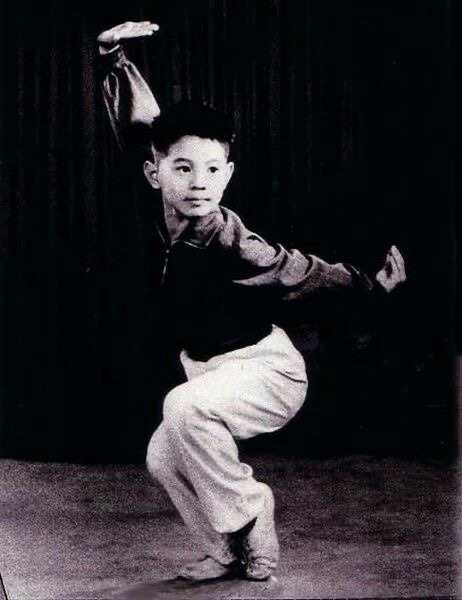
By Sam Cave
Beijing, 1963. A child is born into poverty, the youngest of five. By two years old, his father has passed away. His family can’t afford meat, so young Lie Liajie is often hungry but never complains. When he is eight years old, his mother enrolls him in a summer course for martial arts. He shows a natural talent for Wushu, and his instructor takes notice. The boy attends a non-sparring Wushu event. Soon after, the instructor refers him to Wu Bin, coach for the Beijing Wushu Team. With his family’s permission, he is allowed to join. The coach takes a special interest in the boy, making him practice twice as hard as the other students. The criticism is harsh and constant, but he has good to food to eat and a sense of purpose that will help him to rise above his environment - China’s rocky crossroads between the Great Leap Forward and Mao’s cultural revolution.
A few years pass. Once a year the team is allowed to go to the movies. They watch Shaw Brothers and Shaolin five venoms, and sometimes Jimmmy Chang. One night the team gets to see a film called Fist of fury, Starring a westerner name Bruce Lee. the older boys love the film, and they clap and cheer, some of them smoking cigarettes and drinking rice wine. Their instructor chaperones hush them but also smile and laugh. Even as strict as the coaches can be, these boys need to blow off steam. The boy sits and watches the film, wide eyed. A friend passes him a Coca-Cola but he doesn’t notice. He is mesmerized by Lee Little Dragon’s screams and whoops, his speed and tempo. It is not so much Bruce Lee’s skills - the boy has seen Wing Chun and Southern Style Kung Fu before many times. It is the pauses, the stare, the speed with which he executes each maneuver. These are the things that a young Lie Lianjie would incorporate into his own fighting style, as the years ahead transformed him into the Martial Arts idol in known as Jet Li.
Asian cinema is a vast genre, with very different subsets. When I think of Japanese film, I picture ghost stories and bloody action like The Grudge or Battle Royale. Korea has the darkly comic revenge films of Chan Wook Park (Oldboy, Lady Vengeance). John Woo (Hard-Boiled) and Wong Kar Wai (2046, In The Mood For Love) both hail from Hong Kong. Historically, Mainland China’s identity in film has been firmly rooted in martial arts and Wushu-style historical epic tales. This makes sense, since the Wushu novels of writers like Jin Yong hold a place not unlike Tolkien in Chinese literary culture. Jet Li’s characters in Once Upon A Time in China, Fist of Legend and Fearless are based on real historical figures, and the China depicted in these stories is an honorable, decent place worth fighting for. The nationalistic message is often heavy-handed, but considering the China of twenty or thirty years ago, perhaps people needed to believe in not just heroes, but Chinese heroes.
I first discovered Jet Li when I saw Lethal Weapon 4. He played a silent martial arts villain with a ponytail who could dismantle a gun in seconds. His pre-combat stare was like nothing I’d ever seen onscreen before. It is his trademark - when he glares at his enemy he eminates both pure calm and pure danger. LW4 was Li’s first time crossing over into American films, after making over 30 movies in China since his debut in the 1980’s. Becore Jet Li started acting, there was an effort to find a successor to Bruce Lee, as evidenced by the early films of another Chinese martial artist, Jackie Chan. Chan was ten years older than Jet Li, and had been trained at the Chinese Opera. By Contrast, Li’s training focused purely on martial arts. He specialized in Wushu from the age of eight. Unlike Bruce Lee, who broke with Kung Fu tradition to establish his own style of fighting, Jet Li would become a Kung-Fu formalist. His trained at the Shao-Lin temple and spent years becoming an expert in Northern-style Kung Fu. Before the age of 10, Li won gold medals at the All China Games, and his team performed for Richard Nixon at the White House. According to Wikipedia:
he was asked by Nixon to be his personal bodyguard. Li replied, "I don't want to protect any individual. When I grow up, I want to defend my one billion Chinese countrymen!"
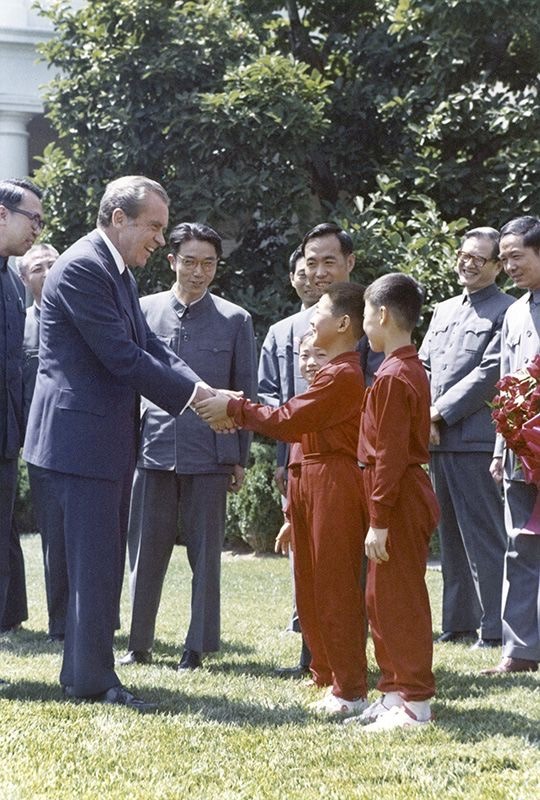
Jet Li would not be groomed as Chan was, to carry on Bruce Lee’s legacy. Too much time had passed and the industry had moved on from Bruce-sploitation and the legacy of Enter the Dragon. When Li first emerged in the 1986 film Shaolin Temple, his Northern Wushu and Tai Chi background was evident in every move, every trap, every aerial spinning kick. His fighting and performing style harkened back to old-school Kung Fu films by Shaw Brothers like Five Venoms and (bla).
…
The storyline of a typical Jet Li film goes something like this: A guy from mainland China (cop, soldier, fill in the blank) is tasked with the responsibility of protecting someone or exacting revenge for a dead master. He goes to Hong Kong, Japan or America, where his upstanding and honorable values are called into question by his new surroundings. There’s a girl, a villain, and much flying of fists and feet until finally the hero returns to China, happy to be home (in The Defender, he is killed and his body goes back to China).
After a few years as a supporting, utility player, Jet Li got the role of a lifetime playing Wong in Once Upon A Time in China. The film, directed by Tsui Hark, was a retro/throwback style historical epic with sharp cinematography and high-flying wire assisted wushu fight choreography and stunts. It was a leap forward for Hong Kong film, and spawned 3 sequels with Li reprising the main role. The films that followed could be described as Jet Li’s Hong Kong period. Fist of Legend, The Defender (also titled Bodyguard from Beijing), The Enforcer, Meltdown, Hitman, Tai Chi Master, Swordsman series. The list goes on.
Some of these movies showcased Li’s martial arts skills better than others. Sometimes he had guns, like Chow Yun Fat in Hard Boiled. Sometimes he had a kid sidekick or a love interest. One thing is for sure - playing in a Hong Kong action movie in the 90’s was not for the faint if heart. Cut-rate action techniques and low-budgets loaned themselves to accidents. The fighting was often full-contact. Actors could end up with a face full of glass from explosions. Still, the Beijing Wushu prodigy found his place amongst other martial artists like Donnie Yen and Michelle Yeoh, churning out epics, gangster films and cop dramas for audiences in Hong Kong (now hurtling towards its handover to the mainland) as well as the rest of Asia and beyond.
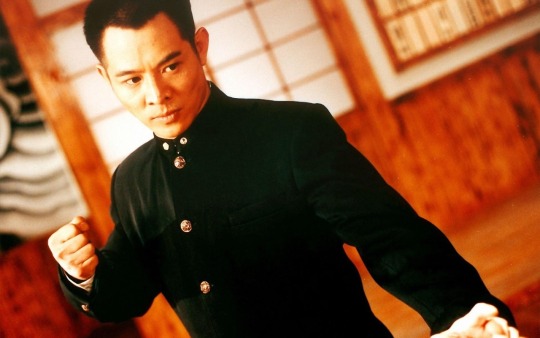
The only unfortunate aspect of Jet Li’s Chinese catalogue lies in the poor production values of most of these films. The overdubbed English is poorly translated, the action has a cartoonish quality and the characters are usually stock and cheesy. In other words, they are typical ‘Chop-Socky’ Kung Fu films made in the style of Bruce Lee’s catalogue, before the technical achievements of later films like Crouching Tiger, Hideen Dragon and Iron Monkey. There are some clear exceptions, such as the Once Upon a Time in China series, expertly directed by Tsui Hark and featuring another Kung Fu prodigy, Donnie Yen.
Because they were made before the age of DVD and HD, Li’s films could only be seen by Western audiences in rare Chinatown screenings in a few major cities. In the late 1990’s a new pop culture trend would change this pattern, and the trajectory of Li’s career – catapulting the Wushu prodigy from China to the United States. When Wu-Tang Clan first arrived on the American hip-hop scene in 1993, no one was prepared. Their albums were soundscapes comprised of hard-hitting verses, skits, and samples from Kung Fu and martial arts films. Along with Nas, DMX and others, Wu-Tang popularized Jet Li’s films by referencing him directly in their music. Li noticed, and his late 90’s output reflected this unlikely alliance. Black Mask, Romeo Must Die, and Cradle 2 the Grave featured Li’s action sequences cut to high-energy hip-hop. The films were successful, proving that Jet Li’s Wushu could be imported to the West.
Like Jackie Chan, Jet Li’s late 90’s crossover into Hollywood films was inevitable. It was a career move probably not based on financial need (he was already wealthy), but more based on the fact that he had outgrown the Hong Kong film scene. After his role in Lethal Weapon 4, he starred in a string of ambitious but fairly crappy vehicles like Romeo Must Die, Kiss of the Dragon, and Cradle 2 the Grave. These films, though largely panned by critics, served the purpose of greater exposure to US audiences and access to directors and filmmaker
In 2006, Jet Li announced his retirement from martial arts movies. The final entries into Jet Li’s martial arts catalogue, all made around this time, are easily the best. Hero, Unleashed, and Fearless are examples of bigger-budget Jet Li, not so different from his Chinese films but with an emphasis on acting and emotional content.
Hero is an epic historical tale in the style of Crouching Tiger, Hidden Dragon. In the film Li plays Nameless, an assassin tasked by an Emperor to eliminate those warriors perceived as threats to his his throne. Filmed in wild and beautiful colors with flawless cinematography, Hero is an example of contemporary Chinese cinema, and how much technical ground has been gained in the past 15 years. The film has been hopelessly replicated and borrowed from since its release in 2002, mostly due to its historical accuracy, dark tone and operatic fight sequences. It was at the time the most expensive mainland Chinese film ever made, and sits at the beginning of a trio of martial arts films by director Zhang Zimou, who before Hero was mostly known in art house circles for his dramatic collaborations with actress Gong Li.
The casting of Hero was an eclectic mix of non-martial artists and experts, with Jet Li (the mainland’s biggest star) in perhaps his biggest starring role to date. Donnie Yen, who at that time was still a supporting player, was brought in for the first fight scene. Maggie Cheung and Tony Leung, coming off the huge success of Wong Kar Wai’s In The Mood For Love, played the feuding lovers Broken Sword and Flying Snow. And Crouching Tiger’s Ziyi Zhang played Moon, the loyal servant. Leung and Cheung were both veteran Hong Kong actors, neither one from strictly martial arts but with 20 years of experience in all genres. Zhang came from a ballet background, and though she had a breakthrough performance in a Crouching Tiger, her martial arts skills were limited. Jet Li recognized her talent and mentored her on set, and joked about his short legs being the reason for his never trying ballet. It made sense for Li to reach out to the younger Zhang, also from the mainland and twenty years his junior. For so long he himself had been the young Wushu prodigy, but now at over 40 years old he was sliding into an elder-statesman role.
The action sequences in Hero used wires extensively - not just as a tool to exaggerate aerial jumps and spins but to make the characters fly and soar the air, dreamlike and surreal. This deliberate wire choreography may have been influenced by The Matrix and Crouching Tiger, but Hero has its own sort of Cecil B DeMille outrageousness to it that is totally out of balance with the serious tone. In fact, Hero is almost weighed down by its own sense of gravity, and is sometimes unintentionally funny when it’s adding more and more layers to each action sequence. (Arrows). It is here that Jet Li is the films saving grace. His sense of form, toughness and his skill not just as a martial artist but as an actor corrects the balance. When Li extends both arms in front of his face and slides his sword back into its sheath with a resounding and satisfying ‘click’, the film resets itself and we, the audience are given a break from the proceedings.
Unleashed raises a poignant question: can a man who has been reduced to an animal find salvation? In this film Jet Li plays Danny, a childlike soul with violent tendencies, trained since childhood to fight and kill on demand. His aggression is symbolized by a metal collar, which is controlled by his brutal ‘master’. Li is passive until the collar comes off, at which time he becomes an attack dog, dispatching his opponents in a flying, screaming rage. Unleashed is pure pulp, but it is elevated by the presence of Morgan Freeman (as Danny’s kind savior), and by Jet Li’s performance. Danny is a kid, full of wonder and innocence, but unable to escape the violence that has defined his existence. Li plays it with subtle, quiet emotion and dignity. The action in Unleashed is as usual exciting and well mounted, choreographed by longtime collaborator Yuen Woo Ping. There are even some darkly funny moments, like when Danny kills an opponent with one poke to the Adam’s apple. Yikes.
Fearless is an atypical Chinese martial arts film, because it shows the hero as lacking virtue (at least for the first half of the film). Li plays Huo Yuanjia, Godfather of Wushu and undefeated champion of Tianjin. After murdering a rival in the ring, the rival’s disciple takes revenge and kills Huo’s family. In his grief, Huo goes into exile and lives amongst simple farmers. Finally he returns home, humbled but also disgusted by the imperialist influx of foreigners taking over China. He begins to fight again, but this time for the honor and reputation of China – essentially for China’s place in the world. His final fight before dying from poisoned tea is against Tanaka, a Japanese samurai. It is worth noting that the Japanese occupation is a common theme amongst Chinese and Korean films. Both countries suffered under Japan at different times, and in the world of Fist of Legend and Fearless (two parts of the same story) the scars are still fresh. Fearless is actually titled Jet Li’s Fearless, and this film finds the actor back in his comfort zone of pure Wushu action and Chinese history. Where in Fist of Legend he reprised Bruce Lee’s performance in Fist of Fury as Chen Zheng, student of Huo Yuanjia and avenger of his master’s death, Li gets to play the master himself. Fearless is a mainland production, not as artsy as Hero and more in the vein of Once Upon a Time in China.
In the wake of Bruce Lee’s untimely death, the martial arts world was fractured. In the West, Karate was gaining speed and this popularity gave actors like Chuck Norris (a contemporary of Lee’s) and Jean-Claude Van Damme
It would seem the sun has set on Jet Li’s career. He left his audience wanting more, and with Disney hinting that he might return to his martial arts roots in Mulan, there may be more to see. In his personal life, Li occupies the rare position of the a mainland Chinese with wealth, who, now living in Singapore, is somewhat beyond the reach of the communist government. As a devout a Buddhist he has in fact visited the Dalai Lama (while making sure to voice his belief in a united China). He
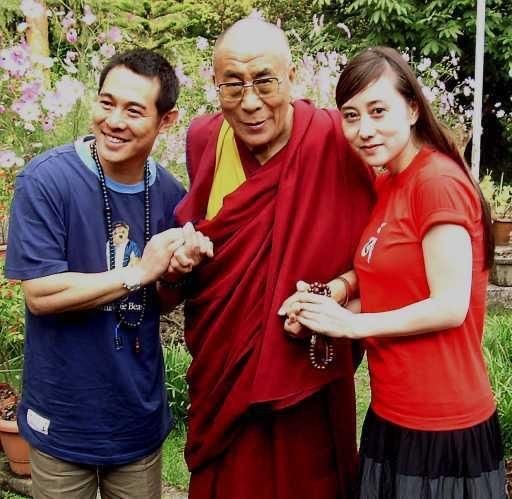
So, the question remains. What is your favourite Jet Li movie? And why does Jet Li Matter? In the opinion of this humble critic, Jet Li Matters because China matters. Mainland China needed a hero during times of extreme transition, when the Western idea of the Middle Kingdom was that it was a place that manufactured plastic trinkets. Audiences got used to Jet Li, Michelle Yeoh, and yes, Jackie Chan - as the heroes of Shao Lin or daring Beijing Police detectives, fighting their way through low-budget films made by an industry trying to keep up with the world, yet not afraid to have some fun in the moment. I still have only seen a handful of the original Jet Li movies, and so my perception of his work is top-heavy, weighed down by the performances from the end of a unique and amazing career. But what performances they are: Danny the Dog sitting next to Morgan Freeman at the piano, trying to find the courage to say his own name. Nameless and Flying Snow deflecting a sea of arrows with their swords, weightless in the air above a temple. And finally Huo Yuanjia, in the last moments of his life and with poison coursing through his veins, finishing his battle against Tanaka, Japan, Imperialist Britain, and himself. Jet Li Matters.
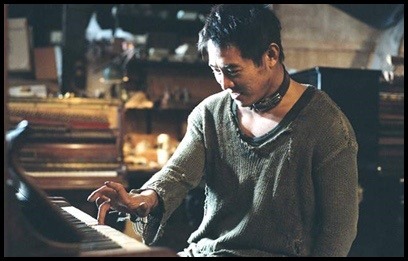
10 notes
·
View notes
Text
Donnie Yen: The Beauty of Kung Fu
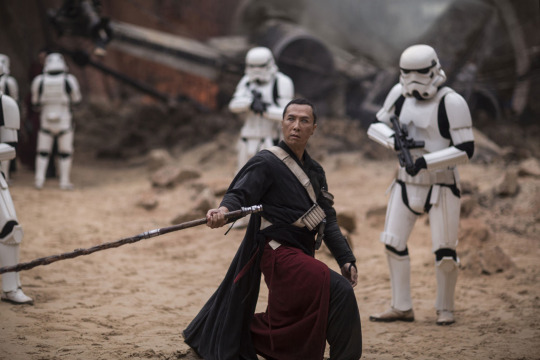
Since the release of Rogue One: A Star Wars Story in December one man seems to have caught the world's attention. He is someone who, it seems, also caught the world slightly unawares. It was as if he had come from nowhere and, for many viewers and critics alike, this could well have been the case. This is especially true in a world which seems to try avoid films in any language other than English.
The man in question is, of course, the great Donnie Yen.
Rogue One had a plethora of action scenes, massive special effects and huge set pieces, but it was Yen's performance as the blind Chirrut Îmwe which got people talking. His relationship with Baze Malbus (Wen Jiang) provided an unexpected heart to Rogue One which millions of viewers seemed to connect to. He was the spiritual link with the main saga, the only proponent of The Force. But what began as a way of attracting an Asian audience to a franchise that many in China (the world's second biggest market) had not yet bought into, turned in to something a whole lot more.
The fact that an actor like Donnie Yen could be so new to so many people even though his career spans over thirty years and over 70 films, is unfortunate but absolutely predictable. Not only is there a language barrier, as most of Yen's films are in Chinese, but there is an availability factor too. If you want to find some of his best films you really have to search them out, although the rise of Video On Demand services like Amazon Prime and Netflix will hopefully remedy this.
Firstly, I need to be entirely honest and admit that I have not seen a great deal of his films. There are huge parts of his filmography that I have yet to watch, but I have seen enough to realise what a great talent the man is. So this is not an overview of a career, not an appreciation of a complete filmography, but a personal perspective, an attempt to put into words my admiration for this great artist.

I think the first time I saw Yen was in the 1993 film Iron Monkey. Donnie Yen plays Wong Kei-ying, a physician and martial artist who is suspected of being the mysterious Iron Monkey – a Robin Hood character who the people of the town adore. The real Iron Monkey is another local physician - Yang Tianchun (Dr Yang) who dispenses traditional medicines to the town's people for free (he is able to do so by overcharging rich customers).
Early in the film the two physicians meet and fight, Wang does so in order to prove he is not the Iron Monkey, but eventually they develop a friendship and at the end, both adopt the Iron Monkey persona to defeat the bad guy. Iron Monkey is full of the most amazing fight displays of Martial Arts, including traditional fight scenes - the final act in the fire, balancing on burning poles, is outstanding - to a wonderfully brief moment when someone opens a door and the wind blows papers into the air. Dr Yang and his wife jump into the air, collecting the papers as they float around the room. I've always enjoyed Martial Arts because they are a form of exquisite dance and this scene illustrates this perfectly.
Iron Monkey was the film which opened the door to Kung-Fu for me and a short while later I was able to see the Once Upon A Time in China movies. Although known as a vehicle for Jet Li, part 2 features two brilliant fights with Yen. Here Yen plays a bad guy to Li's hero. Once Upon A Time in China 2 was made before Iron Monkey (1992) and was probably the film which brought Yen to prominence. I would highly recommend all three films which are great fun and feature some brilliant moments.
Throughout the 90s and into the new century Yen continued to flourish with parts in the TV series Fist Of Fury (based on the Bruce Lee film) and Guillermo del Toro's actioner Blade II but for me his next great role was one which he is possibly most famous for these days – Ip Man.
For me, the three Ip Man movies that have so far been made, are amongst the greatest Kung Fu films ever made. It is a genre that has some truly great films – from the beauty of Crouching Tiger Hidden Dragon, Hero or House of the Flying Daggers, to the sheer joy and daring of Jackie Chan and energetic beauty of Jet Li. They are films which can be packed to the rafters with the most elegant fight sequences whilst becoming more than mere action flicks.
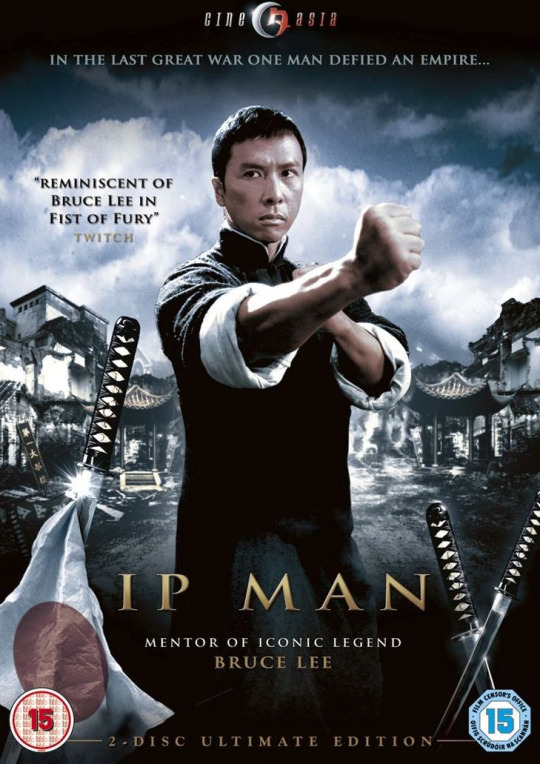
Ip Man is a rich man. He spends his time devoted to his friends and practising his martial arts. He is a quiet man who is completely in control of all aspects of his life apart from his wife who wants him to spend more time with her and their son. He takes challenges amiably, treats people with respect and is never boastful of his achievements. He is also the very best in the town and, when a new gang defeats every martial arts teacher, they all turn to Ip Man to preserve their honour, which dutifully he does (a great fight in which he uses a feather duster as a weapon).
The tone turns darker as China is invaded by the Japanese and Ip Man and his family are left with nothing. Too proud to beg, he pawns off everything they have for food. After a friend of his fails to return from fighting the disciples of a Japanese general who believes Karate it better that Kung Fu, Ip Man's frustrations, rage and national pride comes to the fore. The finale is a tense battle between men, cultures and loyalties.
Ip Man is a great character wonderfully played by Donnie Yen. The way he stands, the purposeful way he moves, the passive strength in his eyes, all combine to make a very fascinating character.
Yen returned for two more Ip Man films, in the second taking on an arrogant English boxer, and in the third the bad guy is none other than Mike Tyson. It is a character that is so well rounded and likeable that even going head-to-head with the former world heavyweight champion doesn't come off as too preposterous. A fourth Ip Man film is currently in production and I, for one, can't wait.

Kung Fu films don't always hold a great deal of depth or beauty. Not all films can be like Wong Kar-wai's masterpiece The Grandmaster (another telling of the IP Man story, you can read my review here), a film of almost transcendent beauty, where fights are allegories for seduction, where each kick is a kiss, each punch a flirtation. Most are there to simply entertain, to present beautifully intricate fight sequences in which the very best battle the very best.
The last film in this very brief appreciation of Donnie Yen is Kung Fu Killer. As you can tell from the title, the film is not about subtlety. It is a straight forward thriller about a convict who joins forces with the police to tackle a killer who is determined to beat, and to kill, the very best in each of the various Kung Fu disciplines.
The film maybe a straight forward actioner but a very good one, especially the final battle on a busy road where lorries barrel passed the hero and his opponent as they fight to the death. Yen's character is very different to the others I have described here but there are certain things which hold each role together.
Firstly, of course, it’s his athletic ability: in each film the fight sequences are presented as forms of modern dance. This is the reason I love Kung Fu and Wuxia films. The fights can be brutal, they can sometimes be bloody, but they are always beautiful to behold. Even simple moments like preparing a meal are presented stylishly with intricate and precise motions (see Iron Monkey, for example). This is one of the reasons a small man like Donnie Yen can beat Mike Tyson – it's not about power, it's about grace and poise.

Secondly, Yen portrays each of these characters with a quiet dignity which commands respect.
Finally, there is an issue of faith: Be it his belief in the Force, a belief in the law or a simple belief in honour. This is the core feature that Yen can bring to a good guy and makes him so relatable.
I started out with a little disclaimer – this is not an overview of a complete career, it's an appreciation of a selection of those films which are readily available and which represent the very best of this great action star. This article is, in my own small way, an invitation to all those fans of the action genres who have never seen a Kung Fu and Wuxia (or any form of Martial Arts) film to take that leap, to plunge into a strange and foreign world in which a battle between two or more people can be as beautiful and elegant as dance. Donnie Yen is the Fred Astaire of modern action movies and I encourage everyone to discover why.
youtube
youtube
youtube
youtube
youtube
7 notes
·
View notes